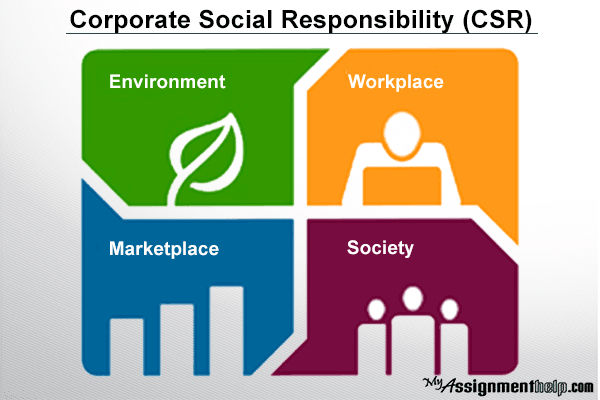
social and environmental benefits for all stakeholders. Keywords: Corporate social responsibilities, important, resistance, advantages, disadvantages Introduction Corporate social responsibility (CSR, also called corporate conscience, corporate citizenship or responsible business) CSR policy functions as a self-regulatory mechanism whereby aCited by: 1 Feb 12, · There are definitive pros and cons for businesses to implement Corporate Social Responsibility (CSR) practices. Corporations want to be ethical and look good in the eyes of the public; however, there can be some barriers that may stop companies from doing these practices. With these advantages and disadvantages, businesses must find the right balance of the implementation of CSR Estimated Reading Time: 2 mins Pros and Cons of Corporate Responsibility. Any business is conducted in a social environment, therefore it is equally unprofitable to ignore the interests of society from a political, cultural, and economic point of view. The long-term interests of companies cannot be realized without adequate financial stability in public circles, which is especially important for large corporations and monopolies
The pros and cons of Corporate Social Responsibility – Corporate Social Responsibility
Corporate social responsibility refers to a method of running a company that pros and cons corporate social responsibility to address not only profitability, but also the environmental and social consequences of the business. While most corporate social responsibility concerns are directed at very large businesses, even small- and medium-sized businesses that employ a large number of local residents or participate in environmentally problematic industries can face pressure to adopt corporate social responsibility.
Embracing a policy of corporate social responsibility, paired with genuine action, can serve to build or improve the reputation of a business. Cost represents one of the biggest arguments against adopting corporate social responsibility as a policy. Programs to reduce environmental impact often require expensive changes in equipment or ongoing costs without any clear way to recoup those losses.
The decision to maintain domestic production facilities or call centers or to buy from domestic producers rather than outsource or move production overseas can drive up costs for a business. Additionally, there is no clear evidence that adhering to a policy of corporate social responsibility generates a significant increase in sales or profit.
One of the hallmarks of corporate social responsibility is staying involved in the communities where the business operates. This community involvement goes a long way toward building trust between customers and the business. If a business builds trust with its customers, they tend to give the business the benefit of the doubt if something goes wrong, rather than assuming malicious intent or raw negligence.
Customers also tend to stick with businesses they trust, rather than actively seeking out new companies, which helps keep a business profitable over the long haul. Some investors do look to acquire stock in socially responsible corporations, but, on the whole, pros and cons corporate social responsibility, investors purchase stock on the expectations of turning a profit. While some companies, such as Toyota and GE, pros and cons corporate social responsibility profited from corporate social responsibility, companies that adopt such policies often prove as likely to lose money.
Given the spotty track record of corporate social responsibility in demonstrating profit increase, investors may resist attempts by executives to move a company in that direction. The Impact of Stakeholders. by Eric Dontigney Updated April 05, Share on Facebook.
Pro: Improved Company Reputation Embracing a policy of corporate social responsibility, paired with genuine action, can serve to build or improve the reputation of a business. Con: Costs Cost represents one of the biggest arguments against adopting corporate social responsibility as a policy. Con: Shareholder Resistance Some investors do look to acquire stock in socially responsible corporations, but, on the whole, investors purchase stock on the expectations of turning a profit.
Corporate Social Responsibility Explained: Why it's important for your business
, time: 17:57Pros and Cons of Corporate Social Responsibility - Vision Launch Media

Mar 04, · Pros & Cons of Corporate Social Responsibility. The concept of "corporate social responsibility" has become pervasive enough that it has earned its own acronym in business circles: CSR. The term Apr 05, · Pros & Cons of Corporate Social Responsibility. Customer Retention Vs. Acquistion. Corporate social responsibility refers to a method of running a company social and environmental benefits for all stakeholders. Keywords: Corporate social responsibilities, important, resistance, advantages, disadvantages Introduction Corporate social responsibility (CSR, also called corporate conscience, corporate citizenship or responsible business) CSR policy functions as a self-regulatory mechanism whereby aCited by: 1
No comments:
Post a Comment